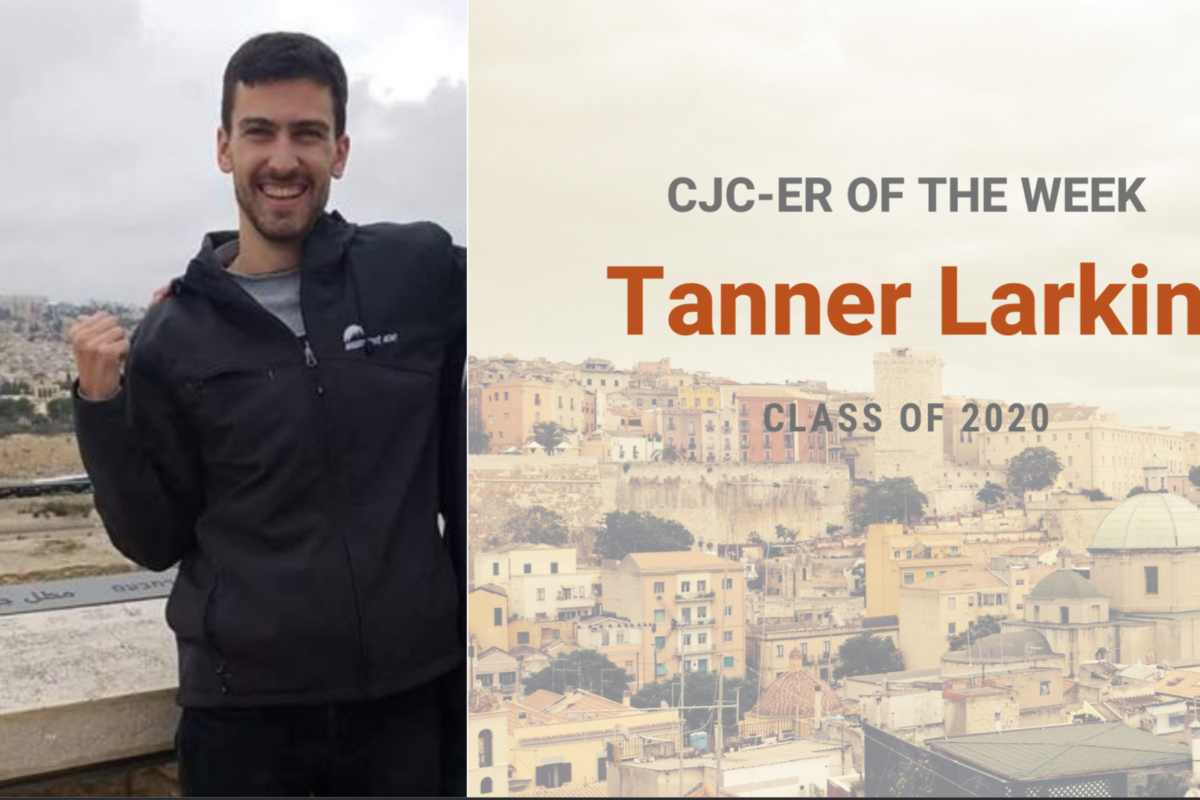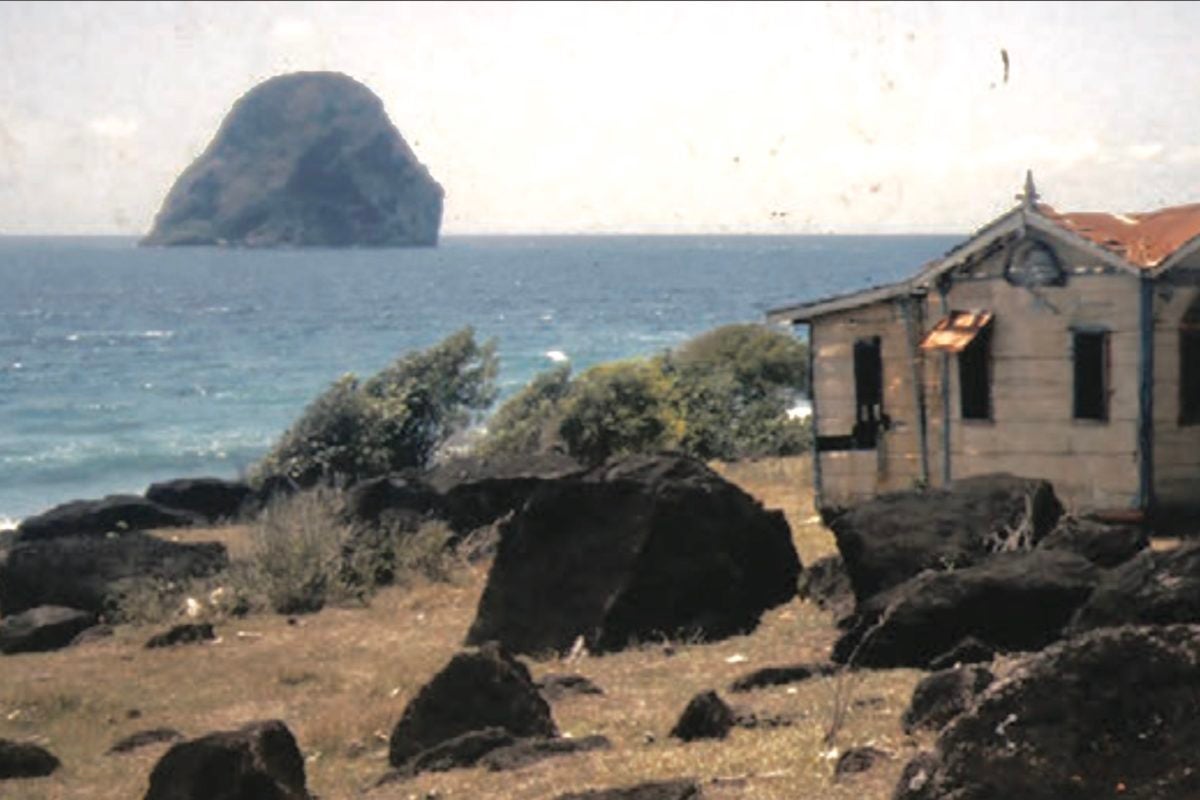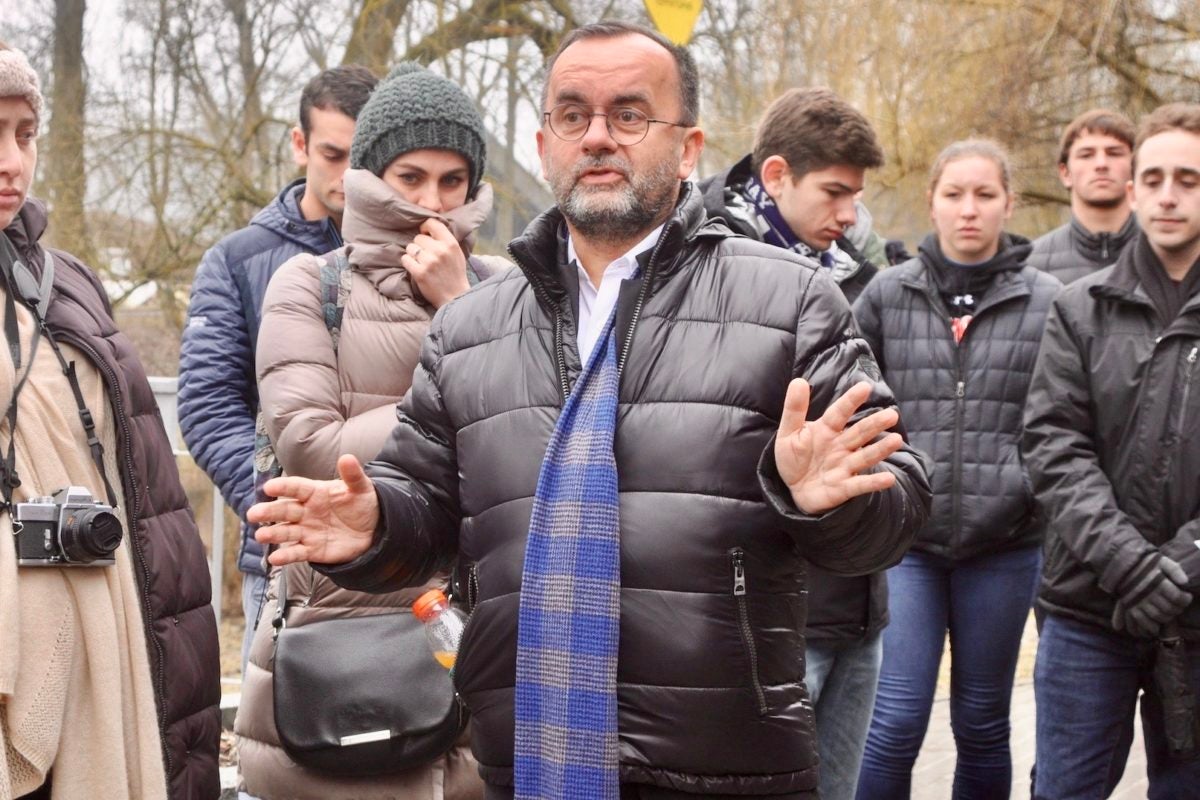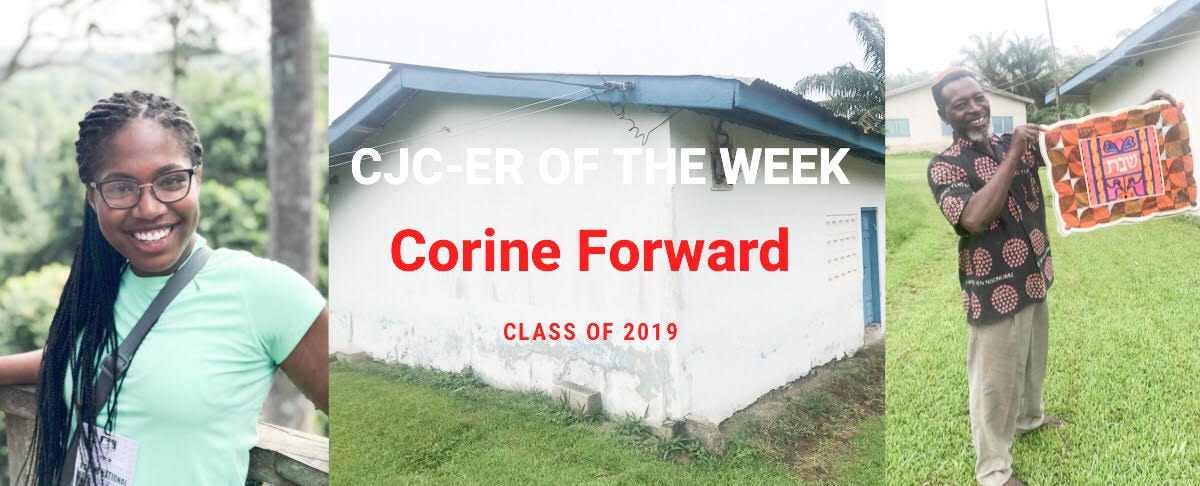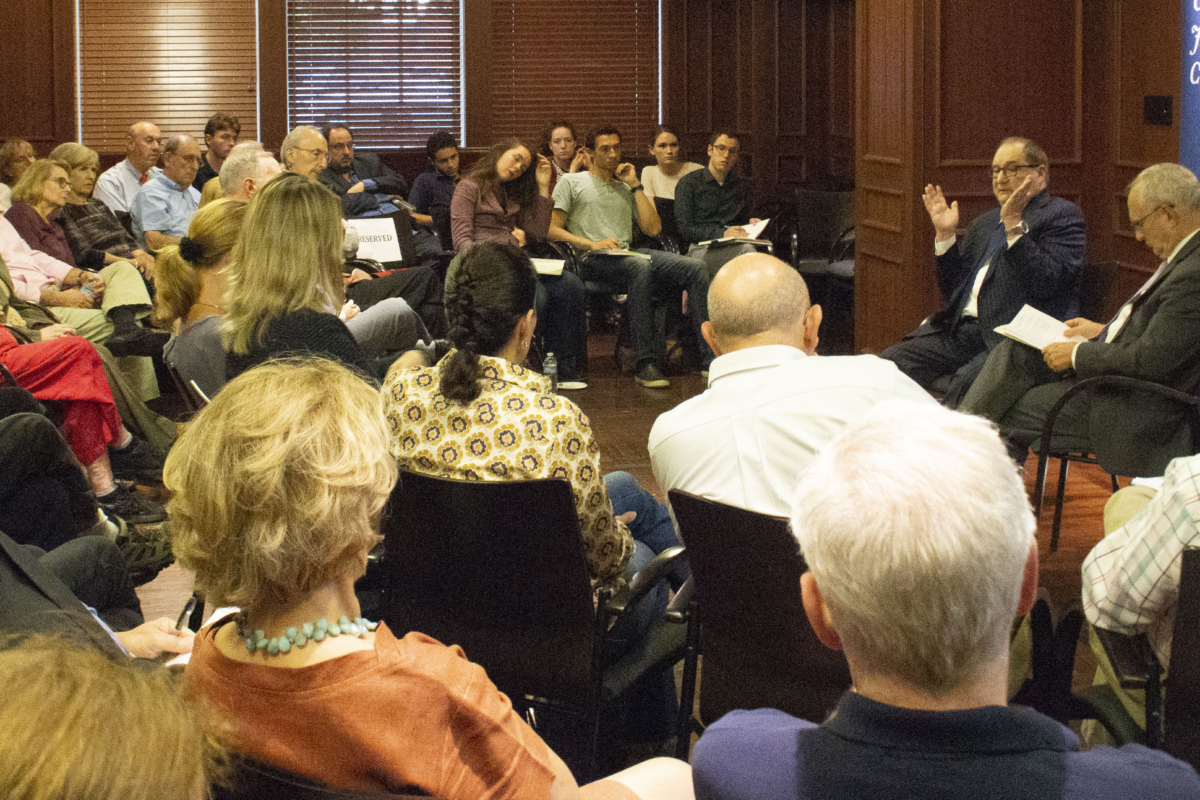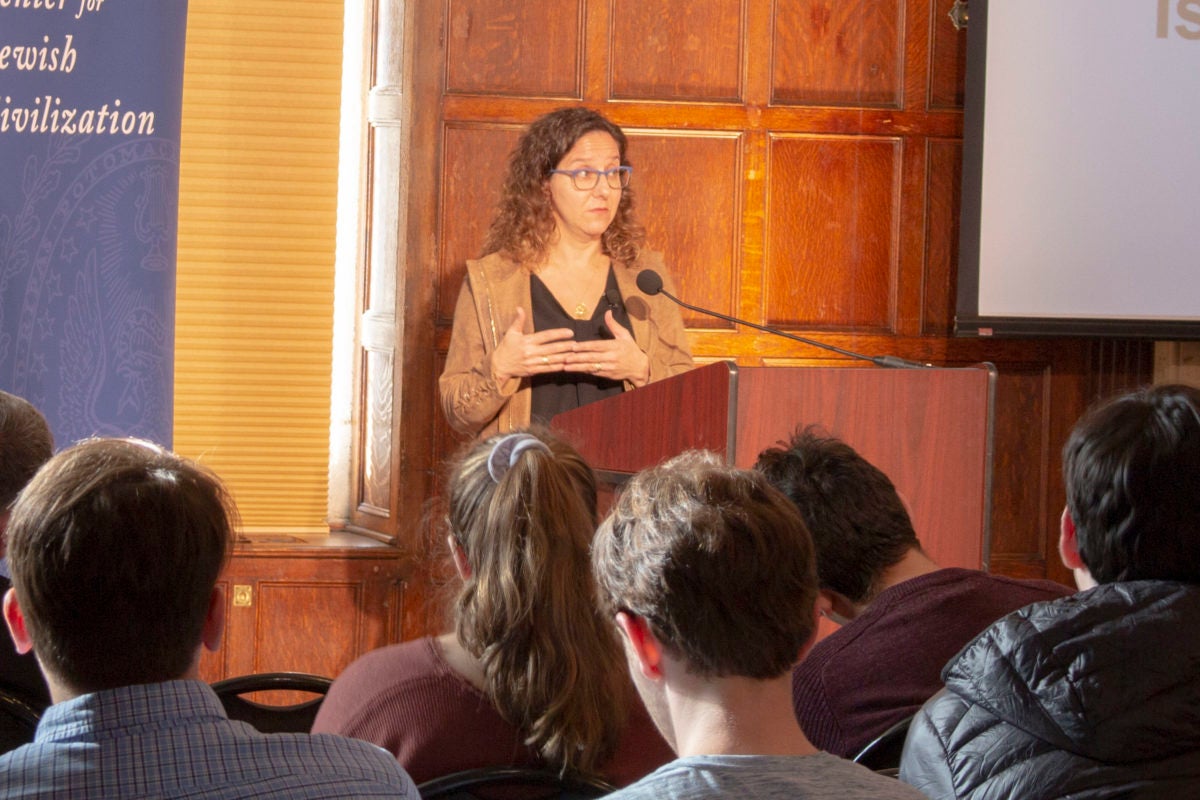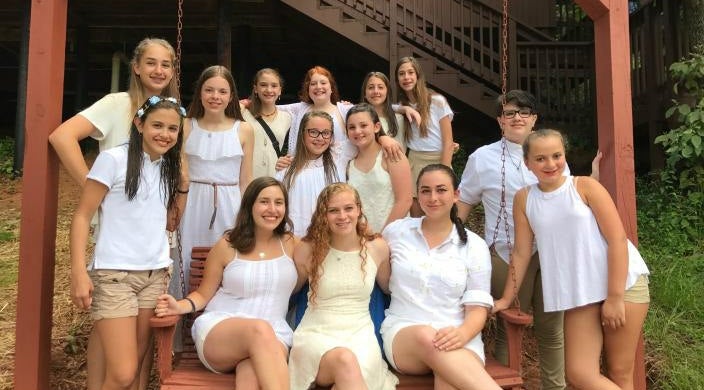CJC-er of the Week: Tanner Larkin
Every week the Center for Jewish Civilization spotlights one of its many talented undergraduates.
Prior to his Fall 2018 semester in Jerusalem, Tanner Larkin never expected to have a front-row seat in seeing the day-to-day happenings of the President and First Lady of Israel.
“From my apartment window, you could see a large helipad. One day early in the semester, a convoy delivered a group of people to a waiting helicopter. My flatmates and I were too far to make out anyone, but I joked that the person in the red pants must be Sara Netanyahu. Sure enough, that day Bibi’s Instagram featured him visiting a new hospital wing with Sara—in bright red pants! From then on, we watched the Netayanhu’s from our window weekly.”
For Larkin, a School of Foreign Service junior majoring International Politics and pursuing a certificate in Jewish Civilization, such experiences came to define his time abroad both inside and outside of the classroom. Originally from Walnut Creek, California, Tanner went to Israel for a number of reasons. He was interested in learning more about Israeli-Palestinian relations, but also wanted to explore his Jewish faith, study Hebrew, and get to know his Israeli family members. His study abroad program also afforded him the opportunity to travel to the West Bank, where he visited settlements, Arab villages, and the cities of Hebron and Bethlehem.
In addition to studying at the Rothberg International School in the Hebrew University of Jerusalem, Tanner interned at Yad Vashem, Israel’s memorial to the victims of the Shoah and a museum dedicated to Holocaust education, documentation, and research. “I am incredibly grateful that I could contribute, even in an extremely minor way, to the mission of Yad Vashem to preserve and honor the memory of the Shoah.”
This wasn’t Tanner’s first time interning in Israel. During the previous summer, he worked at the Abba Eban Institute for International Diplomacy through “Onward, Israel,” a program that connects college students to professional development opportunities in Israel. As a summer intern at Abba Eban, Tanner describes as being “treated like one of the staffers. I got to work on major projects and to take part in off-the-record meetings with Israeli politicians whom you normally just read about in the news. All the while, I lived in the heart of Tel Aviv, just blocks from Rothschild Avenue, and explored the city’s cafes, bookshops, and bars.” Contributing to Abba Eban’s mission of reinvigorating Israel’s diplomatic efforts was an unparalleled experience that Tanner recommends to “CJC-ers [considering] an Israeli summer internship.”
Tanner, now back at Georgetown for the spring semester, reflects on his time in Israel and the Palestinian Territories as allowing him to “deepen and internalize my understandings of Israeli and Palestinian societies, as well as the issues at the heart of the conflict.”
Dr. Jessica Roda in the Association for Jewish Studies: From French Guiana to Hasidic Montreal
The following text appeared originally in the Fall 2018 Issue of AJS Perspectives, the magazine of the Association for Jewish Studies. AJS’s 50th Anniversary Issue focused on New Vistas in Jewish Studies, in which Dr. Jessica Roda’s work was published. The journal in its entirety can be found here.
From French Guiana to Hasidic Montreal
By Dr. Jessica Roda
As an anthropologist and ethnomusicologist specializing in Sephardic/Arab-Jewish and ultra-Orthodox contemporary Jewish life, my research interests focus on music, kinship, and sexuality, as well as interreligious dialogue and international cultural policies. As I was educated in both Europe and North America, my experiences in both continents have led me to acquire expertise in different schools of thought. I started my training with anthropologists, ethnomusicologists, and linguists influenced by the heritage of the French structuralist school at the “Langues, Musiques et Société” laboratory at the Centre National de la Recherche Scientifique in Paris (CNRS). While pursuing my PhD at both Sorbonne University and University of Montreal, I attended seminars in anthropology, ethnomusicology, and sociology at the École des Hautes Études en Sciences Sociales (EHESS) and CNRS. In Montreal, I discovered post-colonial studies, gender studies, intersubjectivity, and the anthropology of music.
In addition to this university background, I was driven by a passion for a culture, a community, and a musical practice. My PhD, obtained in a joint program through Sorbonne University and University of Montreal, focused on the descendants of Sephardic Jews from the Ottoman Empire who settled in France in the twentieth century. I worked for ten years with this community and several artists performing its heritage in France. Then I pursued my journey in the Sephardic world, but this time with the Moroccan Jewish community of Montreal, the city where I settled in 2010. Over the years, living near the neighborhood where Hasidic Jews established themselves, my fascination with their way of life and culture guided me to begin a new journey into a very different, distinct Jewish niche. My fieldwork among Hasidic Jews led me to first meet with people who had left the community, then people at the edges of the community. In time, I was introduced to Hasidic families and became a professor of socio-anthropology, studying religious Jewish women, a majority of whom were Hasidic. One might wonder how and why I became interested in these Jewish communities and why I have started to look at contemporary Jewish lives with an anthropological and ethnomusicological eye. The responses to these questions have to do with a personal journey that I would like to share.
I was born into a family that had experienced migration, open adoption, composite families, war, and displacement during the Spanish Civil War and the Algerian War of Independence. For many years, my parents continued the family preference for a nomadic lifestyle over a sedentary one. With my brother David, the four of us travelled for years through Australia, the Caribbean, Hong Kong, and Venezuela. When I was six, they chose to settle in French Guiana, named “L’enfer Vert” (green hell) because of its hard climate and its past, burdened with a history of slavery and deportation (prison). In French Guiana, Creoles, Amerindians, Bushinengue, Hmong, Europeans, as well as people from China, Lebanon, Brazil, Haiti, Surinam, and Peru were part of my daily experience and would become my closest friends. Different visions of the world were part of my childhood and my discoveries of human beings. These early experiences with Otherness in religion, kinship, migration, language, and culture influenced my development as a person and as a future anthropologist and ethnomusicologist. It aroused in me a deep desire to understand individual and collective negotiation of systems of values and also a need to socialize with people from very different backgrounds. This diversity was also reflected in the music I was surrounded by, all the time and everywhere. At home, at school, in the street, at the conservatory, or at the beach, I had the chance to listen and sometimes perform classical music, reggae, ragga, zouk, jazz, rock, rhythm and blues, samba, French songs, carnival music, kaseko, grajé, bossa nova, and many others sounds. Dance and theatre were also part of my youth, until my early twenties.
When I left French Guiana to study musicology at the Sorbonne University in Paris, as well as piano and modern jazz dance at the Conservatory, I started an identity quest that led me to look back at my own heritage and at my Sephardic Jewish origin. At the age of nineteen, while I was in Montreal for an exchange program, Judaism became part of my life. No longer an artifact from the past that my family had not handed down to me and that I tried to document on an intellectual basis, it then became something that I embodied in my everyday life through the discovery of rituals and prayers.
As this narrative explains, I did not become involved with Jewish Studies at the outset of my academic training. It was the development of my expertise in Jewish life as an anthropologist and ethnomusicologist that progressively led me to be involved in the field. Jewish Studies in the North American sense was not part of the French and the French-Canadian curricula, so it had never been obvious to plunge into such a field of research. Indeed, even if I had the chance to interact with scholars working on Judaism or Jewish music, at research centers specializing in Jewish Studies, and departments of Hebraic Studies issuing diplomas in Hebrew, Yiddish, Judeo-Arabic, or Judeo-Spanish languages (Inalco), it would have been impossible to imagine it as a separate field of study. Furthermore, departments of Jewish Studies generally had very little room, if any, for Sephardic/Arab-Jewish culture, whether through the social sciences or in the humanities. It was only when I started to develop ties with the English North American academic world, after my PhD, that I started to engage with the field of Jewish Studies, first as a postdoctoral fellow at Concordia University with Erica Lehrer and then at McGill University, in its Department of Jewish Studies.
My involvement in Jewish Studies meets the need of a particular time in which scholars studying non-Western Jews and anthropologists working on Jewish topics have started to find a place within departments of Jewish Studies. After an important period of focus on history, theology, philosophy, and eastern European Jewish life, I can foresee the development of a flourishing field within a Jewish Studies department, notably in North America, both for the study of the non-Western Jewish experience as well as on what it means today to experience Jewishness around the globe, which I am sure will bring new and innovative perspectives for Jewish Studies in the twenty-first century.
‘People Are Ready to Die or Go to Jail in Order to Kill Jews Today,’ Warns Fr. Patrick Desbois
Fr. Patrick Desbois speaks to The Algemeiner about his work in Holocaust studies, modern day antisemitism, and why studying the past is integral for understanding contemporary acts of violence against the Jewish community.
Read the full interview here.
CJC-er of the Week: Corine Forward
Every week the Center for Jewish Civilization spotlights one of its many talented undergraduates.
Corine Forward, a senior in the College majoring in English and double-minoring in Jewish Civilization and African American Studies, recently went on a research trip to Ghana. On a previous voyage to the west African nation, Corine was intrigued by the overwhelming pervasiveness of Christianity in Ghanaian life–everything from the way people addressed each other and spoke of “God’s grace,” to storefronts and taxis with references to Jesus plastered all over them. The experience was intense and moving, but Corine had a question: were there any Jews in Ghana?
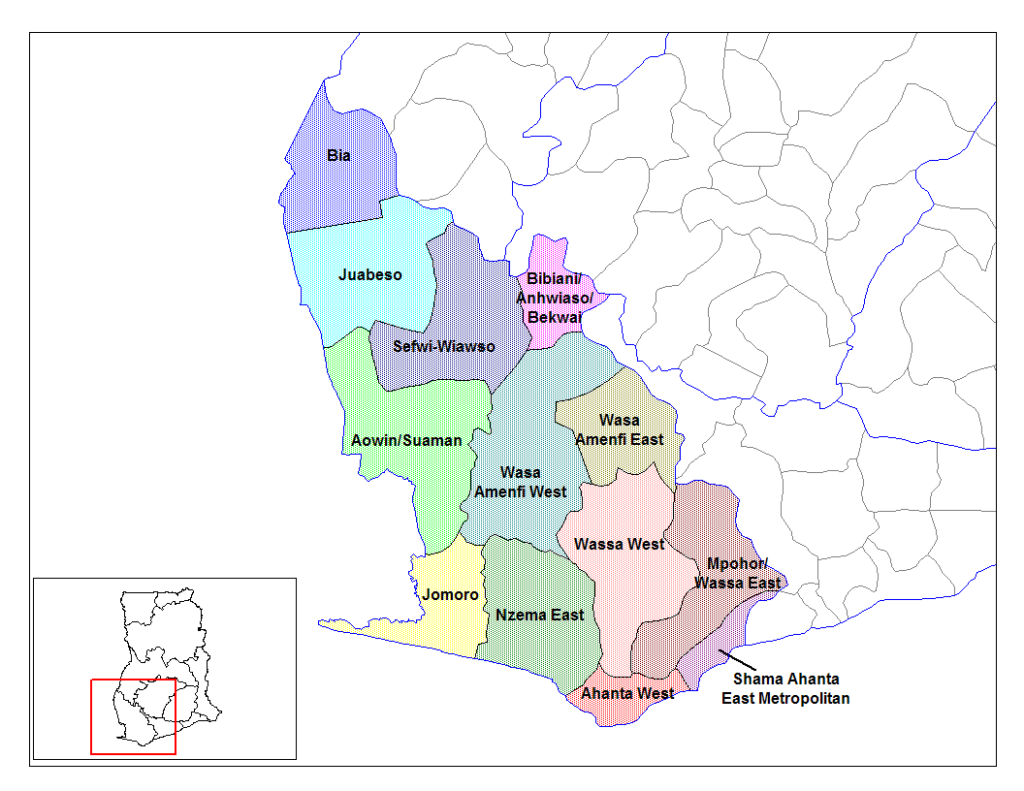
Upon returning to Georgetown, Corine tracked down some scholarly articles that spoke of a Jewish community in the Western region of the country. The Oakland native received the requisite institutional permissions (and some funding from her unit, the Center For Jewish Civilization) and embarked on her study of Jews in the town of Sefwi-Wiawso.
“It was a very informative and positive trip,” Corine said. “From the interviews, I learned that the Sefwi people appear to have clung to some Jewish practices for a long time prior to fully embracing the religion. Eventually in the 1970s a man in the community had a vision that led him to adopt Judaism completely and persuade his neighbors to do so as well.”
Corine was intrigued by the near constant references and comparisons her interview subjects made to Christianity. “Every member [of the community] was very happy to be Jewish and highlighted some of their theological and ritualistic differences with Christianity,” she said. As she writes her senior thesis she is trying to better understand why this Jewish community was so quick to speak of their experiences in the context of their quite peaceful encounters with their Christian neighbors.
The experience was full of surprises and moments of true kindness. One of the men she interviewed, Joseph Armah, who is an elder member of the community, noted how happy he was to have Corine there with them in Ghana. “I am praying,” Mr. Armah intoned, “that when you are going back, the All Mighty God is watching over you so that you tell your family that, ‘I have gone to Sefwi-Wiawso, I have been to Sefwi-Wiawso and I have seen the Jewish people.’ So, I thank you very much for being here with me this morning.”
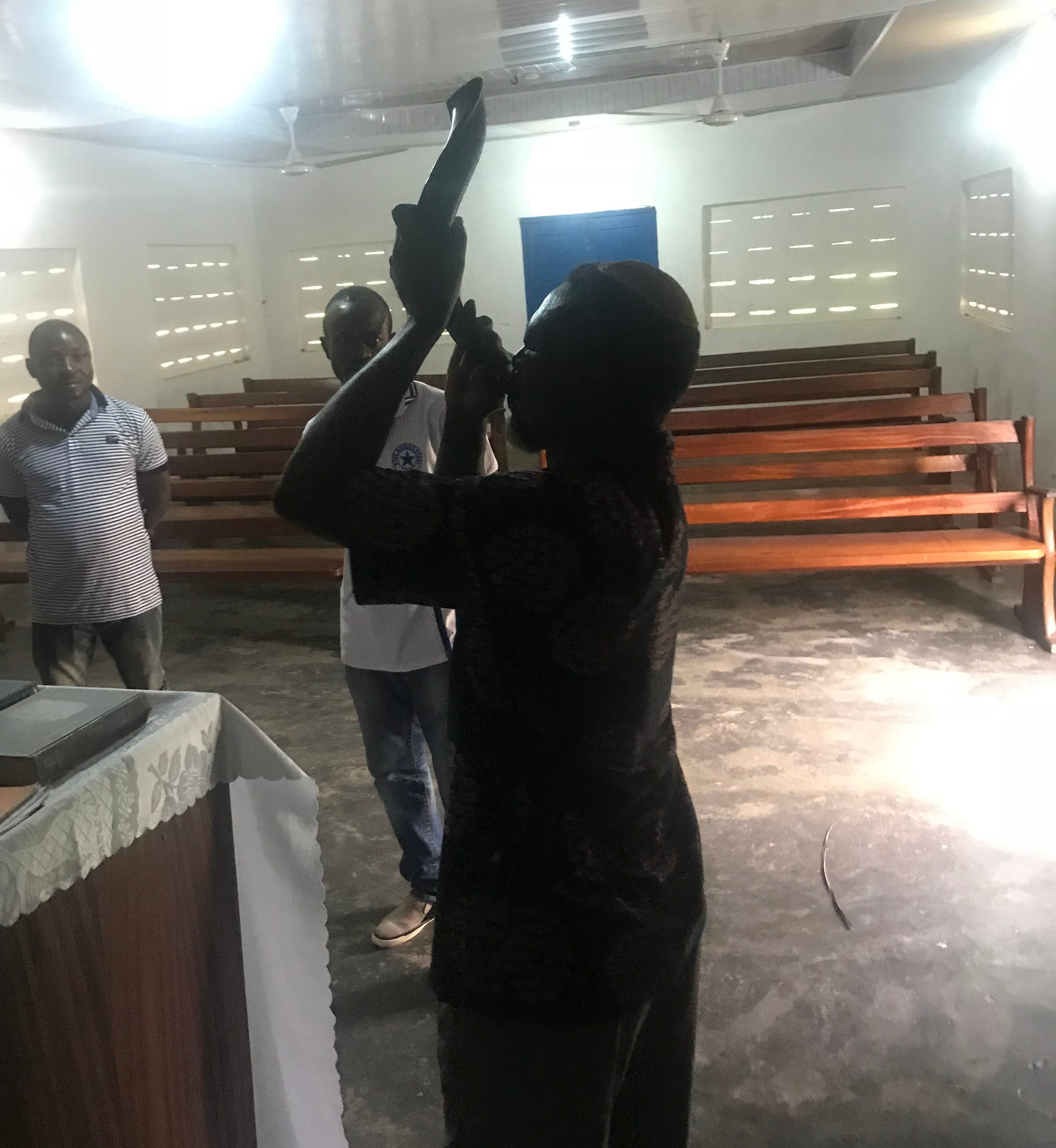
Corine joined the CJC her sophomore year after taking “Blacks and Jews” with Professors Jacques Berlinerblau and Terrence Johnson. “After falling in love with the topic, I wrote my final paper on the Afro-Jew in modern American literature.” The paper was selected to be presented at an academic conference for outstanding undergraduates at DePauw University.
“I knew I wanted to continue exploring Black and Jewish relations,” observes Corine. “Already being an African American Studies minor, I figured it would be really beneficial to also minor in Jewish Civ. So after Prof. Berlinerblau and Anna Dubinsky convinced me and gave me the final nudge, I joined at the end of my sophomore year.”
Along with being a part of the CJC, Corine is also a tour guide for Blue & Gray, a member of Georgetown’s Community Scholars Program, and a part of the Georgetown Scholarship Program. Over the summer she worked with the Public Defender’s Service for DC. She hopes to go to law school and study criminal defense after graduation.
Berlinerblau, who is the Director of the CJC, and one of Corine’s thesis advisors, along with Professor Johnson, remarked: “Luckily, our donors have made sure that we have a fund for special undergraduate projects such as this one. For a student of Corine’s caliber and accomplishments to go out and study a community of Jews as unknown and under-researched such as this one–it was an easy decision for us to make!”
Dr. Jacques Berlinerblau on Anti-Semitism in the US
Abe Foxman and Rabbi David Saperstein
On October 10th, 2018, CJC faculty member Rabbi David Saperstein spoke with former ADL director and Holocaust survivor Abe Foxman about the growth of anti-Semitism in the United States.
Abe Foxman is a former National Director of the Anti-Defamation League from 1987 to 2015, and is currently the League’s National Director Emeritus. Since 2016, he has served as the head of the Center for the Study of Anti-Semitism at the Museum of Jewish Heritage in New York City.
Rabbi Saperstein is the former U.S. Ambassador at Large for International Religious Freedom, Director Emeritus of the Religious Action Center of Reform Judaism, and Senior Advisor to the URJ for Policy and Strategy.
Tamara Cofman Wittes speaks at Georgetown
On Tuesday, October 30th, 2018, Dr. Tamara Cofman Wittes gave the annual Andrew H. Siegal Memorial Lecture at Georgetown University. The talk was entitled “Is Israel in Democratic Decline?” and explored the way populist politics is affecting the longstanding friendship between the United States and Israel. In particular, the rise of ethnonationalist populism in Israeli politics, alongside specific laws and proposals affecting civil liberties and democratic institutions in Israel, have triggered concerns that the country is falling prey to the same sort of intolerant illiberalism now evident in countries like Hungary, the Philippines, and Poland.
Dr. Wittes is a senior fellow in the Center for Middle East Policy at Brookings Institute and the Andrew H. Siegal professor at the Center for Jewish Civilization at Georgetown University. Dr. Wittes served as deputy assistant secretary of state for Near Eastern affairs from November 2009 to January 2012, coordinating U.S. policy on democracy and human rights in the Middle East during the Arab uprisings. Dr. Wittes also oversaw the Middle East Partnership Initiative and served as deputy special coordinator for Middle East transitions.
A Letter to My Summer Campers After Parkland
The following article, originally posted on ReformJudaism.Org, was written by recent Georgetown graduate and former CJC-er Madeline Budman. During the Summer of 2017, she was the programmer for the Tsofim unit at the Union for Reform Judaism’s Camp Coleman, where she designed the curriculum for over 150 campers with a focus on self-care and Jewish Identity.
To my dear campers at URJ Camp Coleman:
After 17 people were murdered at Marjory Stoneman Douglas High School on February 14th, including one of your fellow campers, I haven’t been able to think of what to say except for “I am so sorry.” I am. I am so, so sorry.
I’m sorry that you lost a friend, and that two of you lost a sister. I’m sorry that some of you were in the school when it happened, and that one of you had to watch. I’m sorry that you do not feel safe. I’m sorry for all of the horrible things that you are feeling. I’m sorry that I can’t get in my car right now and go on a road trip to Charleston, and Atlanta, and Athens, and Tampa, and Miami, and Parkland, so that I can hug each and every one of you and tell you that it will be okay.
I also thought to myself: I’m sorry that we failed you. I’m sorry that at camp, for one or two months of the summer, we were unable to prepare you. I wrote programs for you about self-care, but I talked to you about eating healthy and managing stress, not about remembering to eat when you’re overwhelmed by grief or managing earth-shattering trauma. I’m sorry that I didn’t talk to you about writing letters to your Senators, or talk to you more about tikkun olam, repairing the world.
But you are seventh graders. You spent the summer worrying about who would be color war captain, or who your buddy would be at the water park. During your free time, you traded gum and worked on your friendship bracelets, not organizing a march on Washington or writing poetry in memory of one of your bunkmates. I wrote programs for seventh graders: I wanted to educate you on body image, and Jewish identity as you prepared for your Bar and Bat Mitzvahs. I wanted you to learn how to meditate and see the natural world around you anew. I led all of you to a campfire in the woods so that you could write down your greatest insecurities on paper and then burn them to make them disappear. From the bottom of my heart, I prayed that your biggest fears could vanish as quickly and easily as paper burns in a campfire, providing kindling for s’mores.
I’m sorry, instead, for sending you back into this world. At camp, you are safe. You go to bed each night in a cabin surrounded by your closest friends, and you know that your counselors are sitting on the porch, helping you feel protected and loved and secure as you fall asleep. You get to try out new things in a supportive environment, whether it’s auditioning for the musical or playing roller hockey or hiking to a waterfall. I was starkly reminded this week that camp really is a bubble, an out-of-time reality that only exists for two months every summer. When we send you home, we don’t know what’s waiting for you when you get back, and it’s so hard to let you go. I could not have imagined this past August, though, that this is what we were returning you to. Your country has failed you. Adults have failed you. We have failed you. We didn’t make this world safe enough for you.
My hope for you is that your schools will feel as safe as your camp cabins. I want you to be able to run, laugh, play, learn, and grow as freely as you could at camp, where your biggest fear is falling and skinning your knee. I want you to not have to question whether or not the next time you talk to your friends will be the last time you’re able to. I want you to be active and engaged citizens, like we teach you to be at camp, but I want you to do this out of a desire for good, not out of trauma and necessity. Most importantly, I want you to just be kids. I want you to not have to worry. I want you to have a childhood that lasts as long as possible, free from fear, free from pain, and free to always be as happy as you are at 201 Camp Coleman Drive.
And I promise, that for the rest of my life, I will fight for your safety. I will fight for your freedom from fear. I will fight in memory of Alyssa Alhadeff, and in honor of all of you, her peers who are so precious, loving, and good. I will make make this world better for you.

